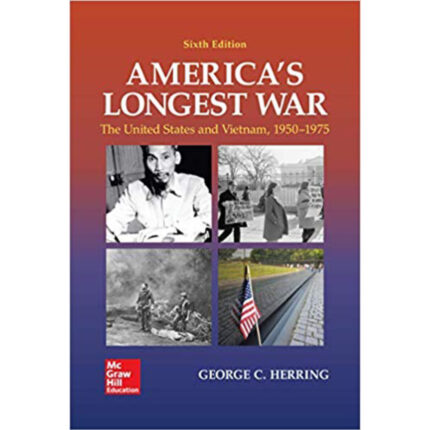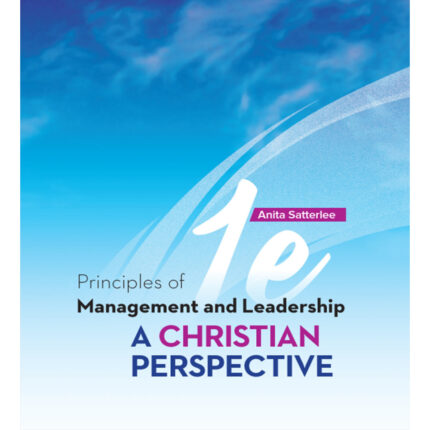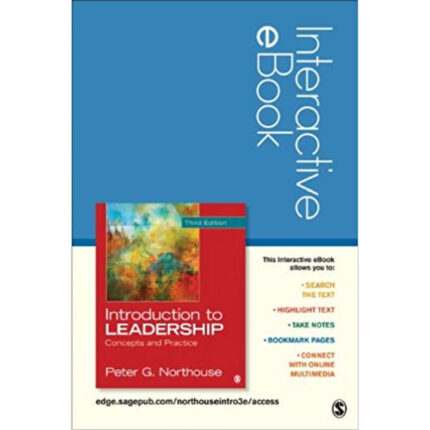Chapter 11
Question 1
Type: MCSA
A committee of hospice nurses at a managed care organization is trying to determine what consumers want and need most. What is the best source of relevant information?
1. The hospice’s human resources officer
2. Families of current and recent hospice patients
3. Hospice nurses from a wide sample of hospices
4. The managed care organization representatives who interact directly with patients
Correct Answer: 2
Rationale 1: The human resources officer is involved in obtaining persons to provide care, but is not as central a consumer as are families and patients.
Rationale 2: Since hospice care is directed toward patients and their families, and family most often survive the patient, they together constitute the best source of consumer data.
Rationale 3: Nurses plan and provide care, but are not as central a consumer as are families and patients.
Rationale 4: Representatives of managed care are involved in obtaining and planning care, but are not as central a consumer as are families and patients.
Global Rationale: NA
Cognitive Level: Understanding
Client Need: Safe Effective Care Environment
Client Need Sub:
QSEN Competencies: Patient-centered care; Teamwork and collaboration; quality improvement, safety
AACN Essential Competencies: II. Basic organizational and systems leadership for quality care and patient safety; VI. Interprofessional communication and collaboration for improving patient health outcomes; V. Healthcare policy, finance, and regulatory environments
NLN Competencies: Personal and professional development; relationship centered care; teamwork
Nursing/Integrated Concepts: Nursing Process: Planning
Learning Outcome: LO 01. Examine the history of healthcare consumerism and its impact on healthcare.
Page: p. 288
Question 2
Type: MCMA
A nurse administrator is planning for the expected increase in healthcare needed for the baby boomer generation. Which attributes of this generation should be considered in this planning?
Standard Text: Select all that apply.
1. This generation is directly assertive.
2. This generation has grown accustomed to managed care and is comfortable with it.
3. This generation is respectful toward health professionals and very grateful for care.
4. This generation defers to their primary care provider and directs healthcare concerns through that person.
5. This generation can be politically demanding as healthcare consumers.
Correct Answer: 1,5
Rationale 1: This generation has experience and a history of being outspoken.
Rationale 2: Managed care has been met with consumer complaints and opposition from this generation.
Rationale 3: Previous generations were more passive and respectful of healthcare professionals.
Rationale 4: Previous generations were more passive and submissive toward healthcare professionals.
Rationale 5: This generation has been very politically active on numerous issues, including healthcare.
Global Rationale: NA
Cognitive Level: Analyzing
Client Need: Safe Effective Care Environment
Client Need Sub:
QSEN Competencies: Patient-centered care; Teamwork and collaboration; quality improvement, safety
AACN Essential Competencies: II. Basic organizational and systems leadership for quality care and patient safety; VI. Interprofessional communication and collaboration for improving patient health outcomes; V. Healthcare policy, finance, and regulatory environments
NLN Competencies: Personal and professional development; relationship centered care; teamwork
Nursing/Integrated Concepts: Nursing Process: Planning
Learning Outcome: LO 01. Examine the history of healthcare consumerism and its impact on healthcare.
Page: 289
Question 3
Type: MCSA
For the nurse interested in impacting public policy regarding healthcare consumerism, which involvement and activity is recommended?
1. Joining nursing associations.
2. Participating in Internet chat and blog sites.
3. Reading health-related stories and articles in popular magazines and newspapers.
4. Encouraging individual patients to formulate and submit their healthcare needs directly to their insurance companies.
Correct Answer: 1
Rationale 1: Large professional organizations, such as nursing associations have programs, data, consultants, and lobbyists that can impact public policy most effectively and powerfully.
Rationale 2: The general Internet tends to be unreliable as a source of information and the multitude of websites is scattered and chaotic in its effect on the public and upon political figures.
Rationale 3: Popular magazines and newspapers would not support this nurse’s need to become politically active as much as joining a professional organization.
Rationale 4: Nurses can best advocate for their patients in public and political arenas by direct and concerted involvement and action.
Global Rationale: NA
Cognitive Level: Applying
Client Need: Safe Effective Care Environment
Client Need Sub:
QSEN Competencies: Patient-centered care; Teamwork and collaboration; quality improvement, safety
AACN Essential Competencies: II. Basic organizational and systems leadership for quality care and patient safety; VI. Interprofessional communication and collaboration for improving patient health outcomes; V. Healthcare policy, finance, and regulatory environments
NLN Competencies: Personal and professional development; relationship centered care; teamwork
Nursing/Integrated Concepts: Nursing Process: Planning
Learning Outcome: LO 02. Assess the relationship between public policy and the healthcare consumer.
Page: pp. 289-290
Question 4
Type: MCSA
A public health team is conducting strategic planning for the next five years of service to the community. The group is reviewing the Healthy People initiative. What help will this be to strategic planning?
1. This initiative specifies the role of nurse practitioners over the coming decade.
2. This initiative lists consumer responsibilities for prevention of cardiac and other diseases.
3. This initiative recommends deinstitutionalization of healthcare in favor of alternative medicine.
4. This initiative outlines goals for preventative health measures, including objectives for age groups and populations.
Correct Answer: 4
Rationale 1: This is not a part of the Healthy People initiative.
Rationale 2: This is not a part of the Healthy People initiative.
Rationale 3: This is not a part of the Healthy People initiative.
Rationale 4: The Healthy People initiatives list specific objectives for health and longevity by age and population.
Global Rationale: NA
Cognitive Level: Applying
Client Need: Safe Effective Care Environment
Client Need Sub:
QSEN Competencies: Patient-centered care; Teamwork and collaboration; quality improvement, safety
AACN Essential Competencies: II. Basic organizational and systems leadership for quality care and patient safety; VI. Interprofessional communication and collaboration for improving patient health outcomes; V. Healthcare policy, finance, and regulatory environments
NLN Competencies: Personal and professional development; relationship centered care; teamwork
Nursing/Integrated Concepts: Nursing Process: Planning
Learning Outcome: LO 03. Compare and contrast the consumer implications of Healthy People and the Institute of Medicine reports (Quality Chasm series).
Page: pp. 291-292
Question 5
Type: MCSA
A patient asks the nurse about the use of information from websites for verifying diagnostic and treatment decisions made by a primary health provider. Which response, made by the nurse, would be most helpful to this patient?
1. “A computer search of the diagnosis should help you verify the accuracy of the diagnosis and treatment.”
2. “You can only count on accurate and useful information if it comes from university or hospital websites.”
3. “That is a dangerous practice, because it undermines your relationship with your primary health provider.”
4. “You can gain general information that way, but be sure to discuss specific websites and information with your primary health provider.”
Correct Answer: 4
Rationale 1: Websites can be very misleading if taken at face value.
Rationale 2: While this information may be more accurate, misunderstanding or misapplying the information can still occur.
Rationale 3: Healthcare providers generally appreciate a patient who is involved in his or her own care and who is trying to learn more about his or her illness and health.
Rationale 4: The Internet offers an extensive array of professional information and amateur opinion that can serve as a starting point for discussion of diagnosis and treatment with one’s primary health provider.
Global Rationale: NA
Cognitive Level: Applying
Client Need: Safe Effective Care Environment
Client Need Sub:
QSEN Competencies: Patient-centered care; Teamwork and collaboration; quality improvement, safety
AACN Essential Competencies: II. Basic organizational and systems leadership for quality care and patient safety; VI. Interprofessional communication and collaboration for improving patient health outcomes; V. Healthcare policy, finance, and regulatory environments
NLN Competencies: Personal and professional development; relationship centered care; teamwork
Nursing/Integrated Concepts: Nursing Process: Implementation
Learning Outcome: LO 04. Assess how technology plays a role in consumer healthcare information.
Page: p. 292
Question 6
Type: MCSA
Consumers are entitled to expect what competencies from nurses in health education roles?
1. Creative knowledge of learning principles, health reimbursement basics, technology, and patient’s clinical needs
2. Ability to question diagnoses made by patients’ physicians
3. Skill in prescribing medications for common, routine disorders and evaluating their effects
4. Awareness that nurses are limited to reinforcing and clarifying physician’s instructions
Correct Answer: 1
Rationale 1: A nurse health educator should be able to use a variety of teaching strategies to meet the needs of a range of patients, including their needs for assistance with negotiating the healthcare and insurance systems, increasing technology, and complicated health and illness facts.
Rationale 2: The nurse health educator is not qualified to question medical diagnoses.
Rationale 3: The nurse health educator is not qualified to prescribe medications.
Rationale 4: The nurse health educator can educate patients about health risks, preventive measures, and treatment compliance, whether or not this has been addressed by the patient’s physician.
Global Rationale: NA
Cognitive Level: Analyzing
Client Need: Health Promotion and Maintenance
Client Need Sub:
QSEN Competencies: Patient-centered care; Teamwork and collaboration; quality improvement, safety
AACN Essential Competencies: II. Basic organizational and systems leadership for quality care and patient safety; VI. Interprofessional communication and collaboration for improving patient health outcomes; V. Healthcare policy, finance, and regulatory environments
NLN Competencies: Personal and professional development; relationship centered care; teamwork
Nursing/Integrated Concepts: Nursing Process: Implementation
Learning Outcome: LO 04. Assess how technology plays a role in consumer healthcare information.
Page: p. 292
Question 7
Type: MCSA
A nurse is being hired to assist patients to navigate the complexities of the healthcare system. What is the most pertinent experience and skill background for this nurse?
1. Interprofessional health team collaboration and communication with insurance and managed care representatives
2. A wide range of medical surgical skills, including familiarity with a wide assortment of chronic disorders
3. Management and supervision within private and public hospitals and community health agencies
4. Primary health and preventive health teaching for patients across the entire life span
Correct Answer: 1
Rationale 1: Skills required to assist patients to understand and effectively use the healthcare and payment systems include excellent personal, team, and technological communication abilities. The abilities to interact with and explain the services of various health professions and case management services are necessary.
Rationale 2: This traditional skill and experience would be helpful, but is not essential to this role.
Rationale 3: This traditional skill and experience would be helpful, but is not essential to this role.
Rationale 4: This traditional skill and experience would be helpful, but is not essential to this role.
Global Rationale: NA
Cognitive Level: Applying
Client Need: Health Promotion and Maintenance
Client Need Sub:
QSEN Competencies: Patient-centered care; Teamwork and collaboration; quality improvement, safety
AACN Essential Competencies: II. Basic organizational and systems leadership for quality care and patient safety; VI. Interprofessional communication and collaboration for improving patient health outcomes; V. Healthcare policy, finance, and regulatory environments
NLN Competencies: Personal and professional development; relationship centered care; teamwork
Nursing/Integrated Concepts: Nursing Process: Planning
Learning Outcome: LO 07. Apply patient advocacy in the role of the nurse manager.
Page: p. 295
Question 8
Type: MCSA
The healthcare consumer has become increasingly concerned about retaining health expenditures. What is the nurse’s best advice to this patient?
1. Carry at least two forms of health insurance coverage.
2. Practice self-care, illness prevention, and collaboration with health providers.
3. Seek private, second opinions on all treatment advice by health providers associated with managed care plans.
4. Simplify medical treatment by complying with physician’s advice rather than questioning such advice.
Correct Answer: 2
Rationale 1: Additional health insurance will not necessarily result in reduced spending.
Rationale 2: Maintenance of one’s personal health and involvement with health providers help reduce health expenditures.
Rationale 3: In order not to incur additional expense, second opinions, when needed, must be obtained within the insurance system.
Rationale 4: Active participation, rather than passive compliance, with health providers is recommended as a means of containing costs.
Global Rationale: NA
Cognitive Level: Applying
Client Need: Health Promotion and Maintenance
Client Need Sub:
QSEN Competencies: Patient-centered care; Teamwork and collaboration; quality improvement, safety
AACN Essential Competencies: II. Basic organizational and systems leadership for quality care and patient safety; VI. Interprofessional communication and collaboration for improving patient health outcomes; V. Healthcare policy, finance, and regulatory environments
NLN Competencies: Personal and professional development; relationship centered care; teamwork
Nursing/Integrated Concepts: Nursing Process: Implementation
Learning Outcome: LO 07. Apply patient advocacy in the role of the nurse manager.
Page: pp. 292, 295
Question 9
Type: MCSA
A consumer complains about the lack of change in an aspect of the health plan that the consumer noted as negative in an earlier patient satisfaction survey. What is the nurse’s best response to this complaint?
1. “That is unusual, since patient satisfaction surveys give the best evaluative information.”
2. “They do those surveys, but the responses are so contradictory that the health plan administrators pretty much ignore the feedback.”
3. “That is highly unethical of the plan’s administrators. The next step would be a complaint to the Surgeon General’s office.”
4. “Patient satisfaction results are part of the evaluation process, but other factors such as professional standards also are considered.”
Correct Answer: 4
Rationale 1: Patient satisfaction surveys alone do not provide adequate data.
Rationale 2: The consumer should not be discouraged regarding his or her role in offering feedback.
Rationale 3: Rather than encouraging high-level complaints, the nurse should direct the patient to the plan’s representatives.
Rationale 4: It is important to acknowledge the consumer’s role in evaluation, but also to educate about the multifaceted aspects of this process.
Global Rationale: NA
Cognitive Level: Applying
Client Need: Safe Effective Care Environment
Client Need Sub:
QSEN Competencies: Patient-centered care; Teamwork and collaboration; quality improvement, safety
AACN Essential Competencies: II. Basic organizational and systems leadership for quality care and patient safety; VI. Interprofessional communication and collaboration for improving patient health outcomes; V. Healthcare policy, finance, and regulatory environments
NLN Competencies: Personal and professional development; relationship centered care; teamwork
Nursing/Integrated Concepts: Nursing Process: Implementation
Learning Outcome: LO 06. Critique how consumers are involved in evaluating the quality of care.
Page: pp. 288, 294-295
Question 10
Type: MCMA
Select the groups that are classified as macroconsumers of healthcare.
Standard Text: Select all that apply.
1. Employers
2. Employee’s family
3. Employee
4. Government
5. Individual purchasers of healthcare services
Correct Answer: 1,4
Rationale 1: A macroconsumer is a large purchaser of healthcare services such as employers and the government.
Rationale 2: Microconsumers are the users of healthcare services, such as employees, employee families, and individual purchasers of healthcare services.
Rationale 3: Microconsumers are the users of healthcare services, such as employees, employee families, and individual purchasers of healthcare services.
Rationale 4: A macroconsumer is a large purchaser of healthcare services such as employers and the government.
Rationale 5: Microconsumers are the users of healthcare services, such as employees, employee families, and individual purchasers of healthcare services.
Global Rationale: NA
Cognitive Level: Understanding
Client Need: Safe Effective Care Environment
Client Need Sub:
QSEN Competencies: Patient-centered care; Teamwork and collaboration; quality improvement, safety
AACN Essential Competencies: II. Basic organizational and systems leadership for quality care and patient safety; VI. Interprofessional communication and collaboration for improving patient health outcomes; V. Healthcare policy, finance, and regulatory environments
NLN Competencies: Personal and professional development; relationship centered care; teamwork
Nursing/Integrated Concepts: Nursing Process: Assessment
Learning Outcome: LO 01. Examine the history of healthcare consumerism and its impact on healthcare.
Page: p. 288













Reviews
There are no reviews yet.